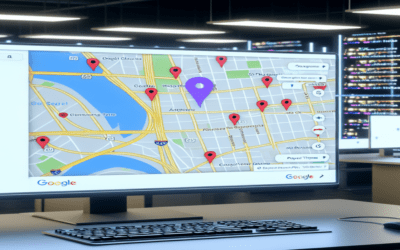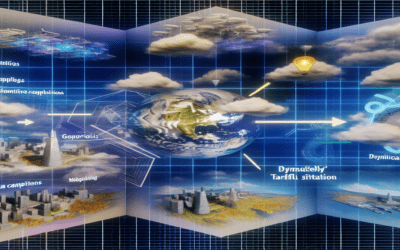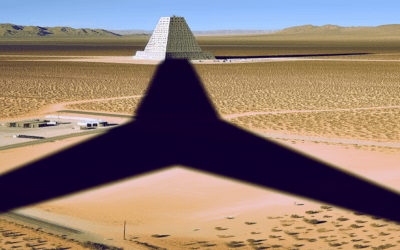In The News
Reviews & Tech Trends
Illuminate Your Business Future: Unveiling 2025’s Premier Google Maps Scrapers
This blog post explores the top five Google Maps scrapers for 2025, highlighting their features, pricing, and capabilities. These tools enable businesses to extract crucial location data, reviews, and contact information at scale, driving data-driven decision-making and growth.
AI Renaissance: Transforming Healthcare by 2025
This article explores the potential of AI in healthcare, discussing the challenges and highlighting top tools like Ada Health, Merative, and Moxi that are expected to transform the industry by 2025.
Lyzr and ElevenLabs: Elevating Enterprise Voice with Lifelike AI
Lyzr AI and ElevenLabs collaborate to revolutionize enterprise voice solutions, enabling businesses to create engaging, efficient, and personalized voice experiences through advanced AI technology, fostering innovation and transforming customer interactions.
AI Unlocks Future of Finance: Predictive Risk Management
AI is revolutionizing financial risk management and predictive analytics, enhancing accuracy in risk assessment, fraud detection, compliance, portfolio optimization, and financial inclusion. Quantum computing promises to further accelerate this transformation.
AI Predicts Satellite Lifespans, Transforming Space Industry
Researchers at the University of South Carolina are transforming satellite management using predictive analytics and AI. Their project aims to optimize reliability, predict anomalies, assess severity, and provide real-time insights for informed decision-making.
Collins Aerospace Strengthens Airbus Alliance for Superior Aviation Solutions
Collins Aerospace partners with Airbus-led Digital Alliance to advance predictive maintenance solutions for airlines, leveraging data analytics and AI to improve operational efficiency, reduce costs, and enhance safety across diverse aircraft fleets.
Alibaba’s Quark AI App Dominates China’s AI Landscape
Alibaba’s AI app, Quark, has surged to the top of China’s AI market, outpacing ByteDance’s Doubao and DeepSeek. Quark’s success is attributed to its integration with Alibaba’s powerful Gwen reasoning models, enabling it to tackle complex tasks and attract 150 million monthly active users globally.
TCL’s Q6/Q651G QLED: Affordable Gaming TV with Style
The TCL Q6/Q651G QLED TV offers budget-friendly smart features and decent gaming performance but compromises on picture quality due to lack of local dimming and low brightness, suiting casual viewers best.
Google Docs’ AI-Powered Audio Overviews Revolutionize Editing
Google Docs introduces Audio Overviews, an AI-powered feature that reads documents aloud or provides podcast-style summaries, helping users identify mistakes, improve writing quality, and enhance accessibility for a wider audience.
Analysts Embrace Predictive AI, Leaving Traditional BI Behind
Businesses are transitioning from traditional business intelligence to predictive AI, empowering analysts to become strategic advisors and data scientists. Organizations must invest in their analysts and provide the necessary tools and training to drive data-driven decision-making and innovation.
BMAC Backs NO FAKES Act to Protect Artists
The NO FAKES Act, supported by BMAC and industry partners, aims to protect artists’ rights by establishing a federal intellectual property right covering a person’s voice and image in the era of AI-generated content.
Google Cloud’s AI Vision: Simplifying Tech Amidst Tariffs & Sustainability Challenges
Google Cloud CEO Thomas Kurian discusses the company’s strategies for AI accessibility, navigating tariffs, and expanding global data centers while prioritizing energy efficiency and sustainability.
Enigmatic Triangle at Area 51 Fuels Extraterrestrial Speculation
A mysterious triangular tower spotted on Google Earth within Area 51 has reignited conspiracy theories and speculation about the secretive military base’s purpose, with some suggesting alien technology or advanced military projects.
Data-Driven Sports: Analytics Transforms the Game
Data analytics is revolutionizing the sports industry, from performance optimization and injury prevention to fan engagement and revenue generation. As technology advances, the potential for growth and innovation in sports analytics is boundless.
Remembering Texas’ Iconic Black-Eyed Pea: A Nostalgic Journey
The last remaining Black-Eyed Pea restaurant in Texas, located in Arlington, continues to serve comforting Southern cuisine that evokes nostalgia and memories for many Texans, making it a worthwhile dining destination.
Amazon’s Nova Sonic: The Future of Voice AI Interaction
Amazon has launched Nova Sonic, a revolutionary voice AI model that combines speech understanding and generation. It outperforms rival models, adapts to user emotions, and opens up possibilities for developers to create innovative voice-based applications.
Data Analytics: Transforming Finance Forecasting
Data-driven approaches, powered by advanced analytics and AI, are revolutionizing financial forecasting, risk management, and decision-making, leading to improved efficiency, personalized services, and a competitive edge in the rapidly evolving financial landscape.
Revolutionizing Claims with CLARA Analytics-Guidewire AI Integration
CLARA Analytics partners with Guidewire to integrate AI into claims management, enabling real-time insights and recommendations for adjusters. The collaboration streamlines workflows, improves outcomes, and delivers substantial cost savings for insurers.
Innovating Healthcare: Bridging Gaps Through Business Processes
This article explores how technological advancements like AI, telemedicine, and EHRs, along with business process innovations such as ERP systems and lean management, are revolutionizing healthcare delivery to bridge accessibility gaps and improve patient care.
HSBC UK Transforms Credit with AI, Wins Prestigious FICO Award
HSBC UK and FICO have been recognized with the FStech Award for Best Use of Data Analytics for their innovative collaboration in leveraging AI to revolutionize personalized credit line offers for customers.
Cybersecurity in 2025: Navigating Challenges and Breakthroughs
Industry leaders shed light on the evolving cybersecurity landscape, highlighting the need for robust security measures, integrated platforms, and a shared responsibility approach to address the rising costs and complexities of cyber threats.





















